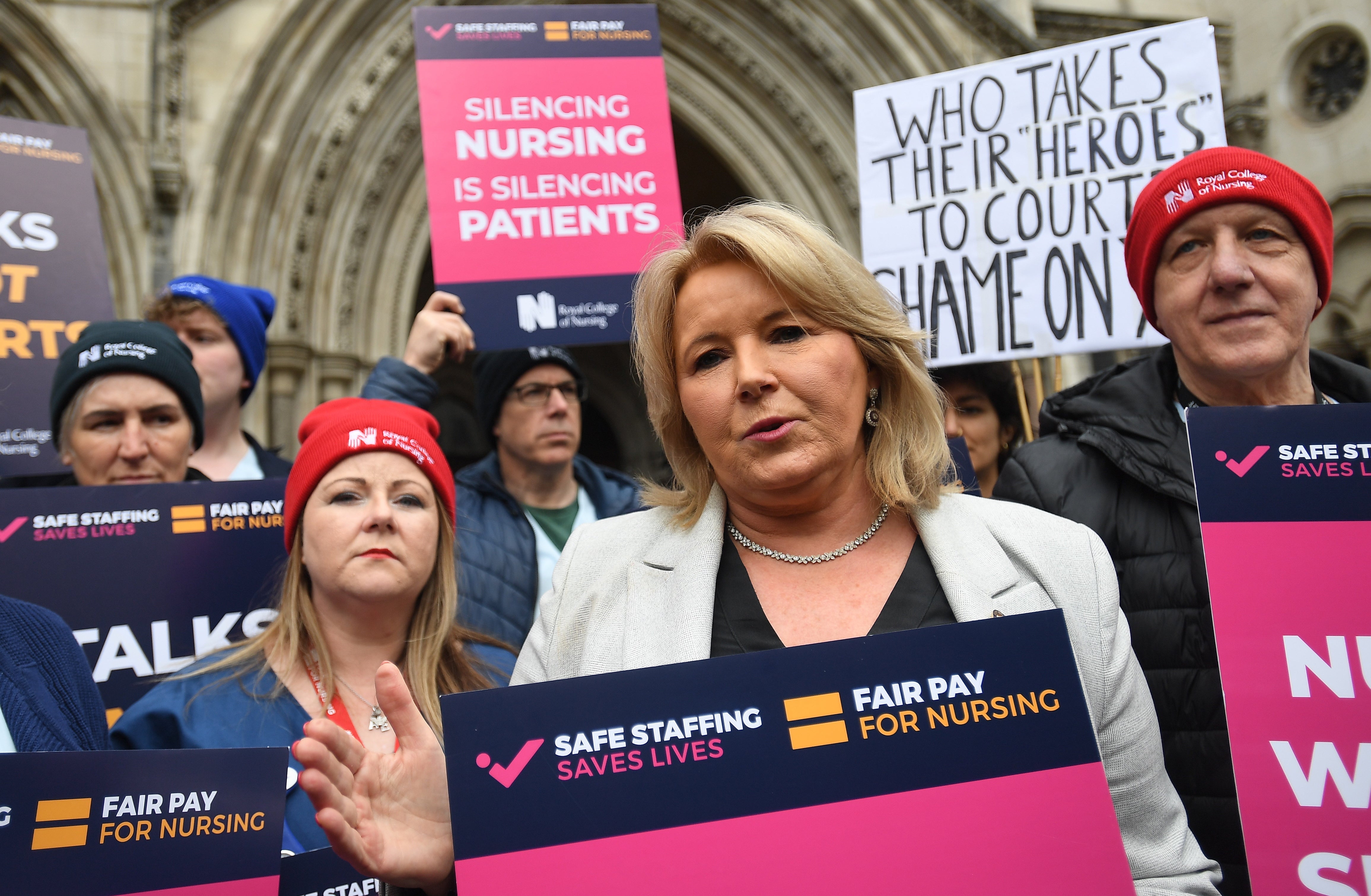It is too early to declare that peace has broken out in the health service, but the acceptance of the latest government pay offer by most of the unionised staff represented on the NHS Staff Council is an important step forward. Members of the GMB, Unison and some of the smaller royal colleges of medicine will no longer go on strike and will no longer risk alienating public opinion that remains solidly behind the nurses at the moment but cannot be guaranteed.
When considering the margins by which the two main holdout unions rejected the government offer, the failure to end the disruption and distress to patients is even more frustrating. Members of the Royal College of Nursing (RCN) rejected the deal by 54 per cent to 46 per cent while Unite, which represents some ambulance crews, was 52 per cent to 48 per cent.
Ministers must be tempted to think the momentum is now behind them. Strikes have dragged on for many months. The pay offer is now going to be implemented, giving it the feel of a fait accompli. There isn’t much realistic chance of a radically better offer being extracted from a government that thinks it is winning. The mood is different now that the main forum for talks between the Department for Health and Social Care, NHS trust management and 14 different groups of staff have actually come to a “majority verdict”, albeit not quite a consensus. Health secretary Steve Barclay may judge that a modest “swing” in opinion within RCN and Unite membership would remove the potential for another ballot endorsing strike action. Pat Cullen of the RCN certainly doesn’t sound enthusiastic about another round of strikes, with all it entails. She did, after all, recommend the package to her membership.
Yet the nurses are not alone; paramedics, radiographers and junior doctors are still in dispute. Should they choose to coordinate their action it would have a devastating effect on hospitals and clinics. For too long it has been assumed these strikes can proceed with no serious impact on patient health, but that is surely a dangerous assumption. It may not be the fault of nurses and doctors that they have been forced into this situation, and they correctly argue that the NHS is chronically overworked and understaffed. However, even with safeguards and derogations, it cannot be right that patient safety is going to be compromised once again. If they overplay their hand, they could lose the most powerful weapon at their disposal: public sentiment. The determination of the strikers is underpinned by a dedication to the ideals and sustainability of the NHS. To them, it is about more than money, given they lose pay every time they strike, thus eroding the value of the higher wages they seek. But the margin between what they want and what they will likely receive is relatively small and bridgeable. This is the moment for compromise.
By the same token, with a comprehensive agreement so close at hand, it is difficult to understand why ministers seem so stubborn about negotiating a moderately improved deal so the NHS can get on with clearing waiting lists. As has been suggested on a number of occasions, arbitration service Acas stands ready to host negotiations without preconditions, and there is no good reason why the RCN, Unite, NHS managers and ministers can’t end the dispute within days. To borrow a slogan now out of fashion, they should “get it done”.




Join our commenting forum
Join thought-provoking conversations, follow other Independent readers and see their replies
Comments